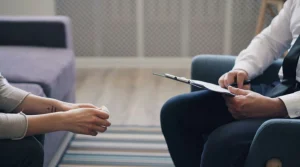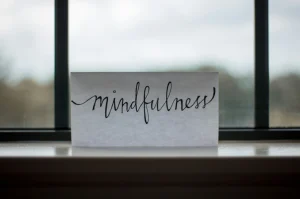In this blog I am seeking to demystify therapy. I use this terminology as for many people therapy is something that they may have heard others talk about to a certain extent. But what actually takes place in the sessions might still remain a mystery. This is because therapy is a very personal experience, and it is also confidential. Therefore, the whole of a person’s experience of therapy is only known by the client and their therapist.

So, what should one expect after deciding to embark upon the courageous act of self-kindness that is engaging in therapy?
Initial Assessment
Well, after I have welcomed you, I’ll usually move onto an initial assessment. This involves taking down some personal details including your name, address, date of birth, doctor’s surgery, and what, if any, medication you are currently taking.
Counselling Agreement
I shall then move onto the counselling agreement. This involves my reading out of the agreement, inviting you to ask any questions you might have regarding it as we go through it. The agreement outlines how we will work together in, and outside of, the sessions including:
- Counselling Aims: This includes a brief explanation of how I intend to guide you through an exploration of the emotions you are experiencing regarding your current situation. It also states that some people might experience a down-turn in wellbeing, before feeling an improvement, meaning that self-care is important throughout the therapeutic experience.
- Confidentiality: This section explains how the content of each session will remain within the room. However, there are some exceptions known as disclosures. This might be something that we have discussed, and which you would like to be disclosed. For example: something that you would like your doctor to be informed of. Additionally, there are some disclosures that I might be required to enact. These disclosures include points when I feel that there is an imminent risk of harm to either yourself, or the general public, or where the law demands it regarding the safeguarding of children and vulnerable adults, or terrorism.
- Supervision: All therapists are required to engage in clinical supervision to ensure their safety to practice. Session are discussed as part of this supervision, but you remain anonymous, and everything that is discussed remains confidential between the supervisor and their supervisee.
Additionally, the agreement includes details of sessions, including session length, remote sessions, contact between sessions, and consent regarding the storage of your personal details and session notes. I shall provide you with a privacy notice regarding where, and for how long, your personal data will be stored, with the option to request a copy of the full privacy policy.

What Is On Offer?
Following on from this, in your first session, I shall explain what is on offer. This will include an explanation of person-centred therapy, which is the predominant modality utilised. But also a brief explanation of cognitive behavioural therapy, and psychoanalysis, as I may utilise elements of these modalities depending on the needs of the individual.
What Brought You To Therapy?
We will then move onto what it is that has brought you to therapy. This might be a single circumstance, or various circumstances. However, as it is person-centred therapy, meaning that you choose the pace at which the sessions progress, there will be no pressure to disclose anything until you are ready to do so. And once you are ready, I shall guide you through an exploration of the thoughts and feelings that you are experiencing regarding the relevant circumstance.
How might you feel after a session?
This can vary person to person, and session to session. This is because we are all individuals, and therefore, we all process emotions in different ways. Additionally, the content of sessions may vary week to week, and so may your emotional responses. Here are some of the potential feelings that you might experience after a counselling session:
Relieved: This can be the result of sharing what is ailing you, and feeling heard and understood.
Energised: This comes from gaining a better understanding of the emotions that you are feeling, in line with your current circumstances.
Exhausted: You might experience this after a particularly challenging counselling session.
Frustrated: There is the potential for feeling this way if you did not feel as though you got what you wanted out of the session. Or if you felt that your therapist did not understand what you were attempting to convey.
Upset/Overwhelmed: You might experience either of these if the session content contains particularly painful, or difficult memories, as this can trigger certain emotions within you.

What to do if the above happens, and you find that you are struggling with your emotions, and this is making you feel nervous so far as the continuation of your therapy is concerned.
- Let your therapist know how you felt after your last session. Your therapist is there, and wants to, help you. You might even want to write notes in preparation for this.
- Discuss the feelings that you are experiencing with those closest to you, should you feel comfortable doing this.
- Journal between sessions.
- Plan something that you enjoy doing, or relaxation techniques, for after each session.
- Contact external services provided at the bottom of the counselling agreement.
